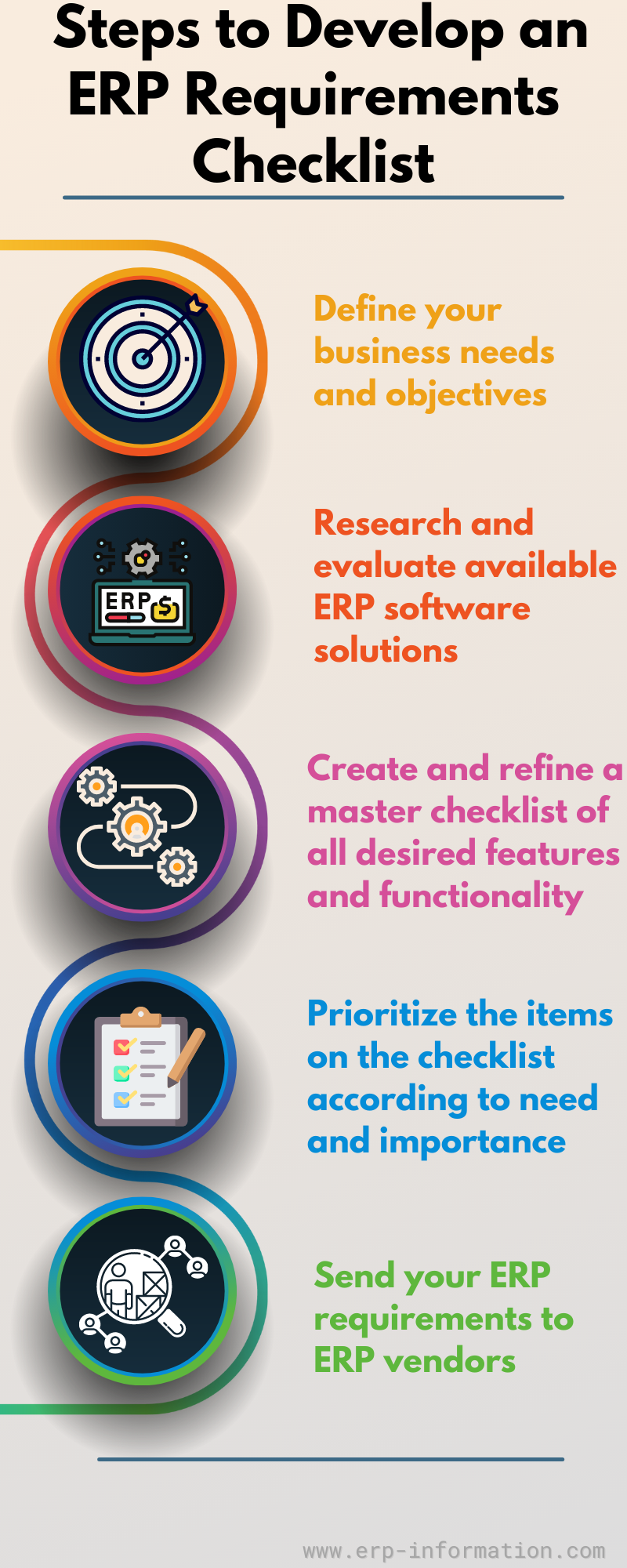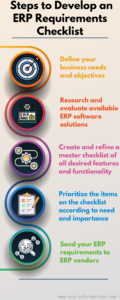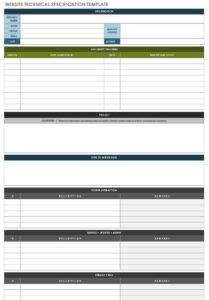Are you in the market for an ERP software system? Whether you’re a small business or a large enterprise, having a clear understanding of your business requirements is crucial for a successful ERP implementation. An ERP software requirements template can guide you through the process of documenting your needs, ensuring that the software you choose aligns with your business goals.
ERP systems are complex and can be expensive to implement, so it’s essential to take the time to develop a comprehensive list of requirements. This will help you narrow down your options and select the best ERP system for your business. An ERP software requirements template can help you identify the key areas to consider, such as:

Functional Requirements
Functional requirements define the specific tasks that the ERP system must be able to perform. These requirements should be detailed and specific, and they should cover all of the key business processes that the system will be used to support. For example, if you’re a manufacturing company, you might require the ERP system to be able to track inventory levels, manage production schedules, and generate invoices.
In addition to defining the specific tasks that the ERP system must be able to perform, functional requirements should also specify the performance levels that are required. For example, you might require the ERP system to be able to process a certain number of transactions per day or to generate reports within a certain time frame.
Non-functional requirements define the overall characteristics of the ERP system. These requirements are often more general than functional requirements, and they can cover a wide range of topics, such as:
- Security: The ERP system must be able to protect sensitive data from unauthorized access.
- Scalability: The ERP system must be able to accommodate growth in your business.
- Reliability: The ERP system must be available and reliable, even during peak usage periods.
- Usability: The ERP system must be easy to use for all authorized users.
- Integrability: The ERP system must be able to integrate with other software systems that you use in your business.
Non-functional requirements are just as important as functional requirements. They can have a significant impact on the success of your ERP implementation. By taking the time to develop a comprehensive list of non-functional requirements, you can ensure that the ERP system you choose meets your business needs.
Conclusion
An ERP software requirements template can be a valuable tool for any business that is considering implementing an ERP system. By using a template, you can ensure that you have a comprehensive list of requirements that will help you select the best ERP system for your business. Developing a clear and concise ERP software requirements template is the first step towards a successful ERP implementation.
Remember, the key to a successful ERP implementation is to take the time to understand your business needs and to develop a comprehensive list of requirements. By following these tips, you can increase your chances of selecting the right ERP system for your business and achieving a successful implementation.

